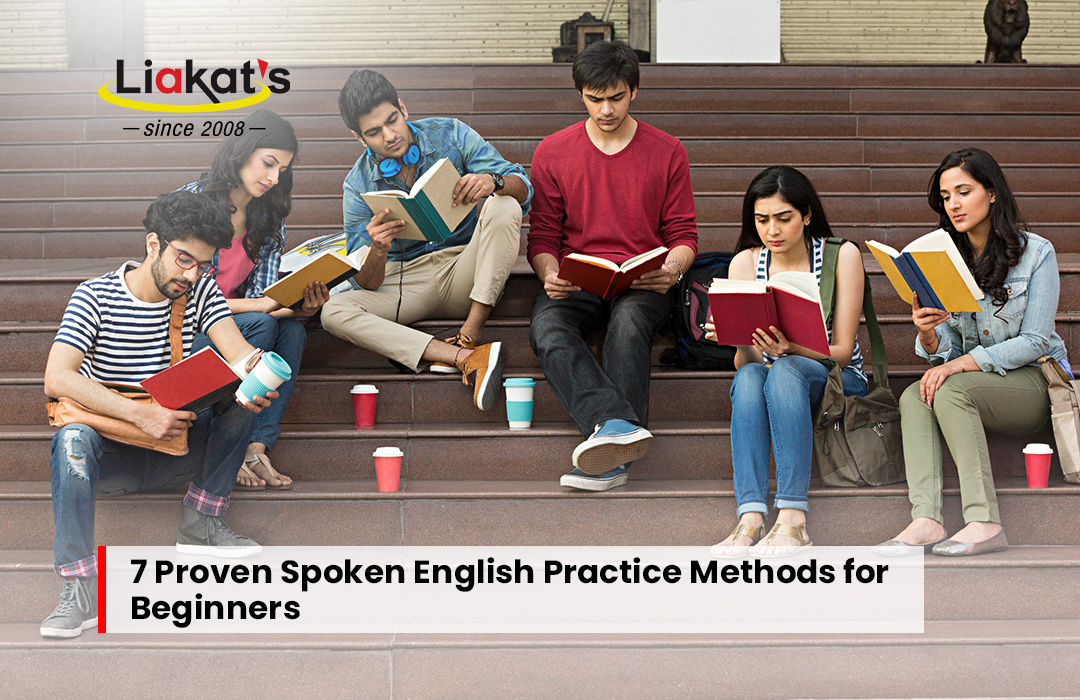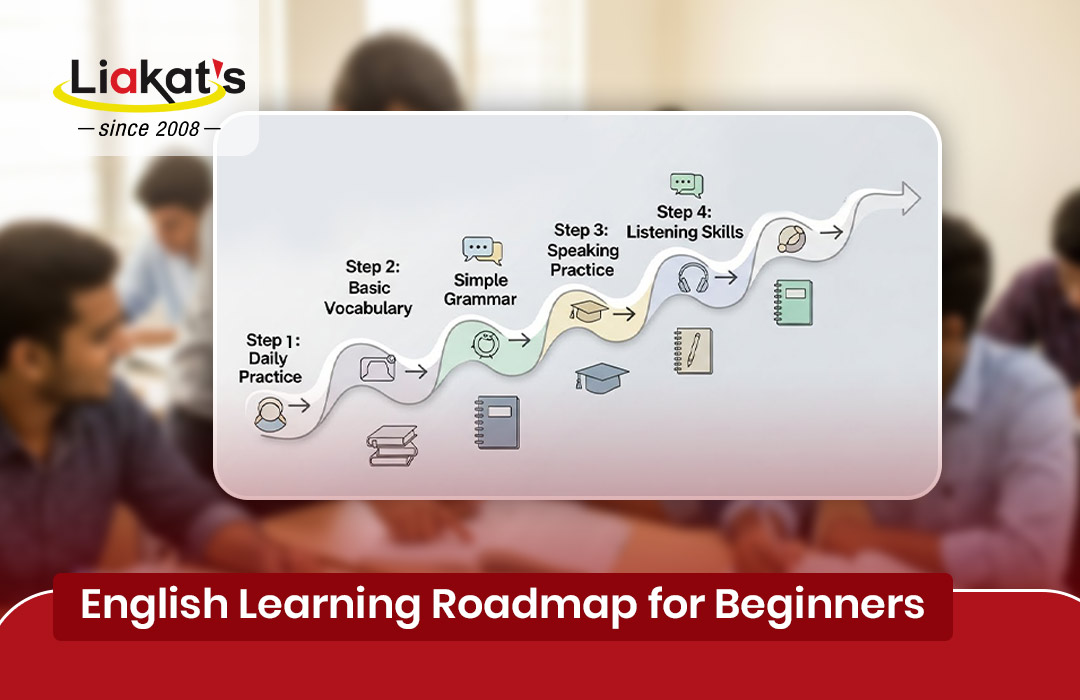Learning to speak English fluently can feel difficult, especially for beginners. But with regular spoken English practice, anyone can improve communication and listening skills, gain confidence, and open up new opportunities. Many students also face problems in the IELTS exam because of common mistakes in IELTS speaking, IELTS reading, and IELTS writing. By avoiding these mistakes and practicing daily, you can improve your English and also get a better IELTS score.
This article shares 7 proven and simple spoken English practice methods for beginners.
Effective Spoken English Practice for Beginners
The first step to improving English is daily practice. Beginners often feel shy or afraid to make a mistake. Practicing every day, even for 15–20 minutes, can help. Following a proper test preparation plan or mock test also reduces IELTS preparation mistakes and builds confidence.
Daily Conversations for Fluent English
Speak English with friends, family, or classmates. Using new words and phrases in real conversations helps you remember them. Don’t worry about mistakes — they are part of learning. Daily conversations improve vocabulary, pronunciation, and prepare you for the IELTS speaking test.
Mirror Technique for Confidence in English Speaking
The mirror technique means speaking to yourself in front of a mirror. This builds confidence, corrects body language, and improves pronunciation. It is very useful for the speaking test in IELTS because you practice alone, reduce fear, and prepare for real interviews.
Listening and Repeating Method
Listen to English movies, podcasts, or songs. Then repeat what you hear. This helps you learn correct pronunciation, grammar, and sentence structure. It is also useful for IELTS listening and IELTS reading sections because you learn English better.
Vocabulary Building Through Real-Life Situations
Practice English in your daily life. Describe what you see, talk about daily tasks, or practice shopping conversations. Using English vocabulary in real situations helps you avoid common mistakes in IELTS writing and makes learning natural.
Recording Your Own Voice to Track Progress
Record your voice while speaking English. Then listen carefully for grammar, pronunciation, and fluency. This helps you find your mistakes and improve. Recording is also like a mock test for the IELTS speaking test, which helps you prepare better.
Group Study and Role-Play for English Communication
Practice English with friends or in a study group. Do role-plays such as interviews, customer service, or daily conversations. Group speaking practice is fun, interactive, and helps prepare for both mock tests and the real IELTS test.
Online Tools and Apps for Spoken English Practice
Many online tools, apps, and practice test websites can help with IELTS preparation. These include AI chatbots, pronunciation guides, and practice tests. Using technology makes daily practice easy and flexible.
Consistency and Daily Habits
Consistency is the key to success. Spend a few minutes daily on speaking, reading, writing, and listening. Small but regular practice helps more than long, irregular study sessions. This way, you will avoid IELTS preparation mistakes and improve your IELTS score step by step.
Conclusion
Improving spoken English takes patience and practice. By following these 7 spoken English methods, beginners can gain fluency and confidence. Daily conversations, mirror technique, listening and repeating, vocabulary practice, recording your voice, group study, and online tools all make learning easier.
Avoiding common mistakes and doing mock tests will also help in your IELTS exam preparation. Start today, build good habits, and make English a natural part of your daily life.
Frequently Asked Questions (FAQs)
How long should I practice English daily?
Practice 15–30 minutes every day for good improvement.
Can speaking alone improve fluency?
Yes. Methods like mirror practice and recording your voice are very effective.
Are mock tests useful for IELTS preparation?
Yes. Mock tests help you avoid common mistakes and prepare better for the real IELTS test.
How soon can I see results?
With daily practice, you can see results in 2–3 months.
Should I focus on grammar or vocabulary?
Both are important. But using new words in speaking and writing is very useful for beginners and helps in the IELTS exam.





